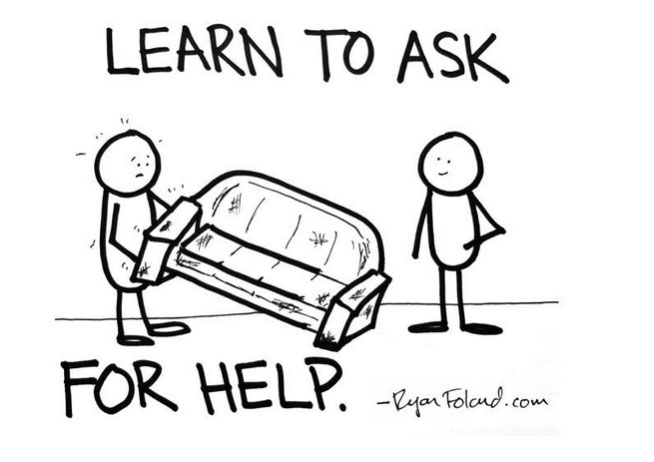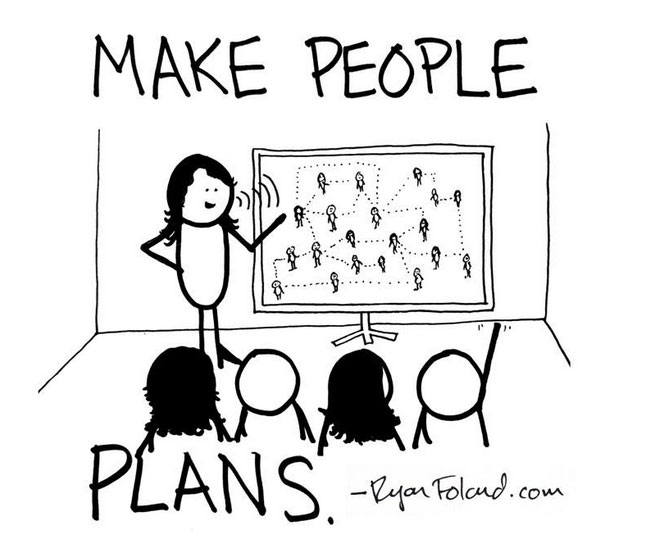How Mastermind Groups Would Change the Game (if you let them)

While conducting focus groups with CEOs in the early part of the decade, I asked them to list the resources they typically rely upon to meet their personal and organizational growth needs. Their unassisted responses ranged from reading books and participating in executive development programs to hiring coaches and consultants. When offered a list of options from which to choose, mastermind groups would only rarely be identified among the resources that were part of their consideration set. It amazed me at the time because mastermind groups have proven to be so incredibly useful, yet relatively speaking, so few CEOs and other business leaders take advantage of them. It continues to baffle me today.
During a conversation with my recent podcast guest, Mo Fathelbab, who has been leading and training groups/forums for more than 20 years, he said that leaders understand why such groups may be effective from an “academic” perspective. Still, he does not believe they always understand how groups provide tangible value. Mo raises a fair point.
My friend Ryan Foland, who champions what he calls the 3-1-3 program, reminds leaders that he doesn’t care what they do, he only cares what business problem they are trying to solve. Let me take what Mo and Ryan have to say and try to advance our collective understanding of what mastermind groups are all about into something more tangible and visceral. Primarily, because the need has never been greater, both for CEOs and their employees.
For CEOs
The world has never been more complex (or faster moving) than it is today. With that in mind, going it alone makes about as much sense as attempting to move a sofa up a flight of stairs by yourself. CEOs who share the responsibility of being the decision-maker for their entire organization can learn and grow from one another in ways they won’t realize anywhere else. Your fellow CEOs, particularly those who come from different industry sectors, can prepare you for what’s coming and help you deal with what’s on top of you more effectively than anyone else. Why? Because they will help you paint a complete picture of any situation, from which you can assign meaning, and make more effective decisions.
The more you help one another, the more you grow, and the better everyone performs. In the face of a pandemic, remote work teams, sweeping societal changes, a tenuous economy, a presidential election year, the advent of AI, and a host of other challenges we don’t even know about yet, surviving and thriving in today’s world will take a group effort. You could go it alone, but with so many people counting on you and so much riding on your success, why in the world would you?
For Your Employees
While business has undoubtedly been challenging, to say the least, your employees’ worlds have been turned upside down. While adjusting to a whole new work life, their personal challenges range from keeping their families safe to homeschooling their children to caring for elderly parents – assuming they can even be with them face-to-face, which is often not the case. The physical and mental stresses everyone is experiencing cannot be minimized.
We look to our peers for comfort and support. We’ve been doing it since we were children, and, in today’s world, it stands to reason because employees trust one another more than their CEO, the Board of Directors, or their immediate supervisor (Edelman Trust Barometer). The more intentional we are about facilitating peer support, the better it will be for everyone. It’s called peer advantage. What could be more basic and useful than being purposeful about what is proven?
If Ryan were to press me about what business problems are being solved here, I would say that whatever productivity you’re enjoying with your remote work team is not sustainable long-term unless you address the five following areas. If they have not reared their heads yet, they will:
- Burnout: Too many employees are burning the candle at both ends. They can’t and won’t do it forever.
- Obscurity: Getting noticed for your hard work while you’re in the office is tough enough. Imagine what it feels like for employees whose insecurities about feeling disconnected make them feel invisible. If this goes on too long, they’ll find a place where they don’t feel that way.
- Isolation: As social beings, being isolated for too long isn’t healthy. It’s among the reasons solitary confinement can be among the cruelest of psychological punishments. It’s something we should work to spare our employees.
- Insulation: When we’re insulated, we not only feel invisible and alone, we can also get so focused on our finite jobs and the immediate task at hand, that we can become disconnected from the broader purpose of the organization and our contribution to its mission.
- Inspiration: If you’re feeling any one or a combination of the first four, one can only imagine how difficult it would be to feel inspired every day. Lighting a fire under someone is short-term. Lighting the fire within is what it will take to encourage people to thrive long-term.
Mastermind Groups Outside and Inside Your Company
If you’re a CEO and you’re not part of a mastermind group with whom you can work and confide, it’s time to find one. The world is too treacherous to go it alone. Just ask anyone you know who belongs to one, and they’ll tell you why it’s been a game changer.
Once you experience the benefits of how a group will help you, you’ll understand more fully how, by creating mastermind groups inside your organization, you can help your people help each other. You’ll do more than help them manage burnout, obscurity, isolation, insulation, and inspiration. You’ll also work together to create a culture of innovation and celebration. That’s a business result worth achieving.
Have you read?
World’s Most Powerful Passports.
World’s Top Global Wealth Management And Advisory Firms.
The World’s Best Luxury Superyacht Charters And Builders.
Bring the best of the CEOWORLD magazine's global journalism to audiences in the United States and around the world. - Add CEOWORLD magazine to your Google News feed.
Follow CEOWORLD magazine headlines on: Google News, LinkedIn, Twitter, and Facebook.
Copyright 2025 The CEOWORLD magazine. All rights reserved. This material (and any extract from it) must not be copied, redistributed or placed on any website, without CEOWORLD magazine' prior written consent. For media queries, please contact: info@ceoworld.biz










